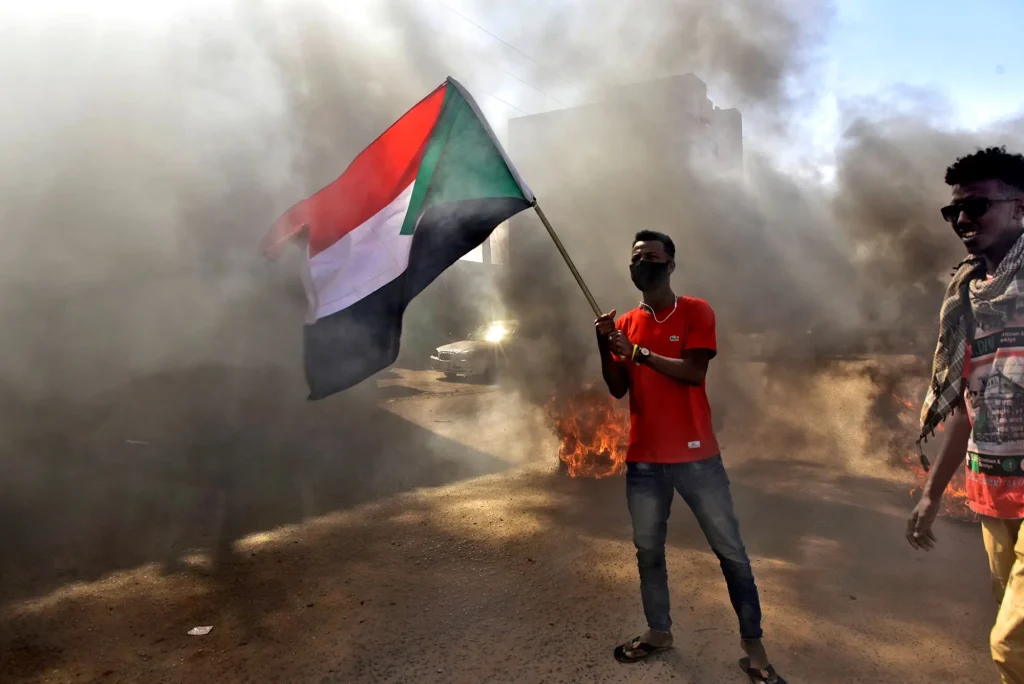Sudanese civil forces are continuously calling for the cessation of the war, receiving positive responses from the Rapid Support Forces (RSF) while facing opposition from the armed forces, the Port Sudan authority, and extremist militias linked to the Muslim Brotherhood, which according to experts, aim to prolong the conflict to regain power.
Former Sudanese Prime Minister Abdullah Hamdok, head of the “Sumoud” coalition comprising civil and revolutionary forces, said that the Muslim Brotherhood and extremist Islamist groups have allied with the army in the war solely to reclaim power after being ousted by the popular revolution that ended their rule, which lasted from 1989 to 2019
Civil forces agreed to form alliances to end the war and launch a comprehensive political process leading to a peaceful and democratic power transition. Among these alliances is “Ta’sees,” which has taken practical steps by aligning with the RSF, a party to the conflict that has supported the initiative to end the war and alleviate civilian suffering.
The United Nations describes Sudan’s humanitarian crisis as the “world’s worst,” with tens of thousands killed since the civil war began in mid-April 2023. Millions have been displaced internally or have fled to neighboring countries, while civilians and displaced populations suffer from severe shortages of food, medicine, public services, and drinking water, as the conflict has destroyed the country’s infrastructure.
The Security Council report submitted by the UN Panel of Experts on Sudan accused army forces of indiscriminately bombing schools, hospitals and medicine warehouses during the war, in a clear violation of international and humanitarian law, and classified as a war crime.
A government of peace
The “Ta’sees” coalition, consisting of civil forces advocating for peace, has aligned with the RSF, which has expressed support for local initiatives to end the military conflict and seek political solutions. The coalition announced the formation of a new government focused on peace and stability, in response to the Port Sudan authority established after the coup amid the civil war.
During his speech marking the second anniversary of the war’s outbreak, RSF commander Mohamed Hamdan Dagalo, known as “Hemedti,” emphasized the importance of political solutions to end the ongoing conflict in Sudan, asserting that war alone is not the answer. This stance contrasts with that of Sudanese Armed Forces chief Abdel Fattah al-Burhan, who stated last month in an AFP interview that the war would not cease, and that he would neither negotiate with the RSF nor accept any initiatives for dialogue.
Hemedti asserted that “weapons alone are not enough to resolve the political crisis,” emphasizing that “a government of peace and unity, comprising a broad civil coalition that truly represents Sudan, is the solution.” His remarks drew significant attention, as they marked his first statements since the “Ta’sees” coalition announced the formation of a consensual civil government.
The RSF and civil forces share a common vision for Sudan’s future, advocating for a peaceful transfer of power and prioritizing political solutions, consultations, and negotiations with all parties to pave the way for stability and tranquility in the country.
Conflict of forces
The civil forces on the one hand, and the Muslim Brotherhood and extremist groups on the other, refuse to enter into any negotiations on power-sharing or the representation of all regions of Sudan in the government, while the “Ta’sees” coalition proposes the establishment of a popular government with 15 members from different regions of the country.
The civil forces, on one hand, and the Muslim Brotherhood along with extremist groups, on the other, refuse to engage in negotiations over power-sharing or the inclusive representation of all Sudanese regions in government. Meanwhile, the “Ta’sees” coalition advocates for the formation of a popular government comprising 15 members drawn from diverse regions across the country.
The civil coalition has resolved that its interim constitution must guarantee religious freedoms. In a speech last month, Hemedti affirmed: “Sudan is a democratic, secular, and decentralized state, and the separation of religion from the state guarantees religious freedoms and affirms the neutrality of the state.”
The civil forces signed the transitional constitution last March in the Kenyan capital Nairobi, followed by ongoing discussions within the “Ta’sees” coalition on forming the proposed popular government, including a presidential council, a cabinet, and a legislative authority.
On the other hand, extremist militias and Islamist groups continue to spread their ideas that ruled the country for 30 years from 1989 to 2019, and pressure the armed forces and the Port Sudan authority to reject all initiatives to negotiate and share power with other civil forces.
DISCLAIMER: The Views, Comments, Opinions, Contributions and Statements made by Readers and Contributors on this platform do not necessarily represent the views or policy of Multimedia Group Limited.
DISCLAIMER: The Views, Comments, Opinions, Contributions and Statements made by Readers and Contributors on this platform do not necessarily represent the views or policy of Multimedia Group Limited.


